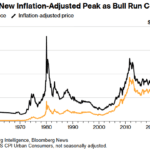The DOJ alleges Uber drivers systematically refused rides or failed to accommodate passengers with disabilities, including those with service animals and wheelchairs.
Uber Technologies Inc. is facing a new legal challenge after the US Justice Department filed a lawsuit Thursday in federal court in Northern California, accusing the ride-hailing giant of violating the Americans with Disabilities Act (ADA).
The DOJ’s civil rights division claims Uber discriminated against disabled passengers by allowing drivers to deny service or fail to provide accommodations. The complaint highlights repeated incidents involving riders with service animals or those who rely on stowable wheelchairs.
“People with disabilities should not face barriers or humiliation when using essential services,” the Justice Department said in its filing, stressing that Uber’s business model does not exempt it from federal civil rights law.
Uber’s legal risks
The case adds to Uber’s history of clashes with regulators worldwide. While the company has previously settled related complaints and pledged to improve accessibility, the DOJ’s suit could lead to fines, mandated reforms, and heightened scrutiny of its driver policies.
The lawsuit underscores a longstanding tension in the gig economy: whether platforms like Uber can be held accountable for the actions of their independent contractors. Disability rights groups have argued that Uber’s policies place the burden on passengers rather than ensuring compliance across its network.
Market reaction
Uber shares ($UBER) were little changed in after-hours trading Thursday, but analysts warn that prolonged litigation or potential settlements could weigh on investor sentiment.
The case now moves forward in federal court, with Uber expected to mount a defense arguing its compliance efforts and driver training meet legal standards.
Disclosure: This article does not represent investment advice. The content and materials featured on this page are for educational purposes only.
Gold Surpasses Inflation-Adjusted Record High Set in 1980
CPI report shows prices climbing faster than July, What it means for Fed
France’s Government Collapses — What Moved in Markets and What’s Next
The Big Question: Are Crypto ETFs About to Explode?
ETF Boom or Bubble? US Now Has More ETFs Than Stocks as Retail Piles In
Bitcoin ETFs Surge on Trump Election Prospects, Market Braces for Volatility










